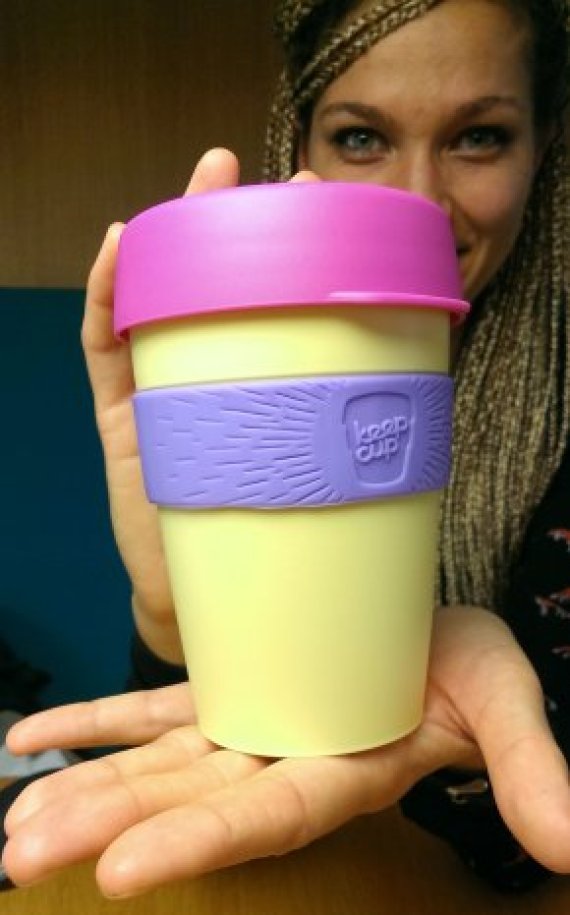© Roelof Kleis
Lilo Trogisch is the initiator of the attack against the plastic cups. The German PhD candidate (Sociology of Development and Change) was startled when she arrived on campus last year. ‘Shocking’ is the word she used to describe the amount of plastic that is consumed daily in the cafeterias. ‘Especially the cups; they are all around campus. Each catering service has them. How can this be at a sustainable university like Wageningen?’
It did not take long for her to find a group of like-minded people to act upon this. Together, the group wants to start a revolution: the Reuse Revolution. That is also the name the group now goes by. Their first target: the plastic cup. That choice is nothing less than logical to Trogisch, as she already has experience on the matter. She has previously sounded the alarm to ban plastic at other institutions – and did that successfully.
Melbourne
Her first encounter with the KeepCup was while she studied in Sydney. The KeepCup is an Australian ‘invention’, with its roots in Melbourne. Trogisch was able to make the cup a hit on campus there. She did get help from the employees of the catering services, as they gave people a discount every time the cup was used in their machines. When she studied in London afterwards, she repeated the feat.
And now, it’s Wageningen’s turn. But it still took quite some effort before people’s thoughts aligned. Trogisch sounded the alarm with Facilities and Services, but did not get any reaction. WUR did not want to act as a sponsor either. Even the shop in Forum was not interested in the gimmick. The breakthrough came when Trogisch and her revolutionaries were allowed to pitch before the joint catering services on campus three weeks ago.
Discount
‘They were extremely enthusiastic’, Trogisch remembers with some astonishment. ‘The catering services will tackle it together. They will make a joint purchase to spread the financial risk. They will sell the cup and give a 10-cent discount each time the cup is used in their machines.’ The coffee machines in Forum and some other buildings already give a 5-cent discount when one uses their own mug. That discount will be doubled. Posters will explain exactly how this all works.
A reusable cup is just a small step, but many small steps can make a big difference.
Lilo Trogisch
The KeepCup itself is made of … plastic. But it is recycled plastic, says Trogisch. The item consists of four coloured parts that you can easily trade with others. That way, you can personalise your cup. According to Trogisch, you can also ask for your preferred colours upon purchase. She thinks that this variety in colour options is one of the aspects that makes the cup so popular. According to the KeepCup website, over three million have already been sold in 32 countries worldwide.
Behavioural changes
Trogisch thinks the KeepCup is just the beginning. ‘For me, it really isn’t about the cup. You might just as well use your own cup. The aim of the Reuse Revolution is to initiate a behavioural change. The catering services are part of the solution, but what really needs to change are the people’s behavioural patterns. A reusable cup is just a small step, but many small steps can make a big difference.’
The KeepCup costs 9.95 euros and will be available starting Monday at the four catering services in Forum, Orion, the Restaurant of the Future and the Leeuwenborch.


